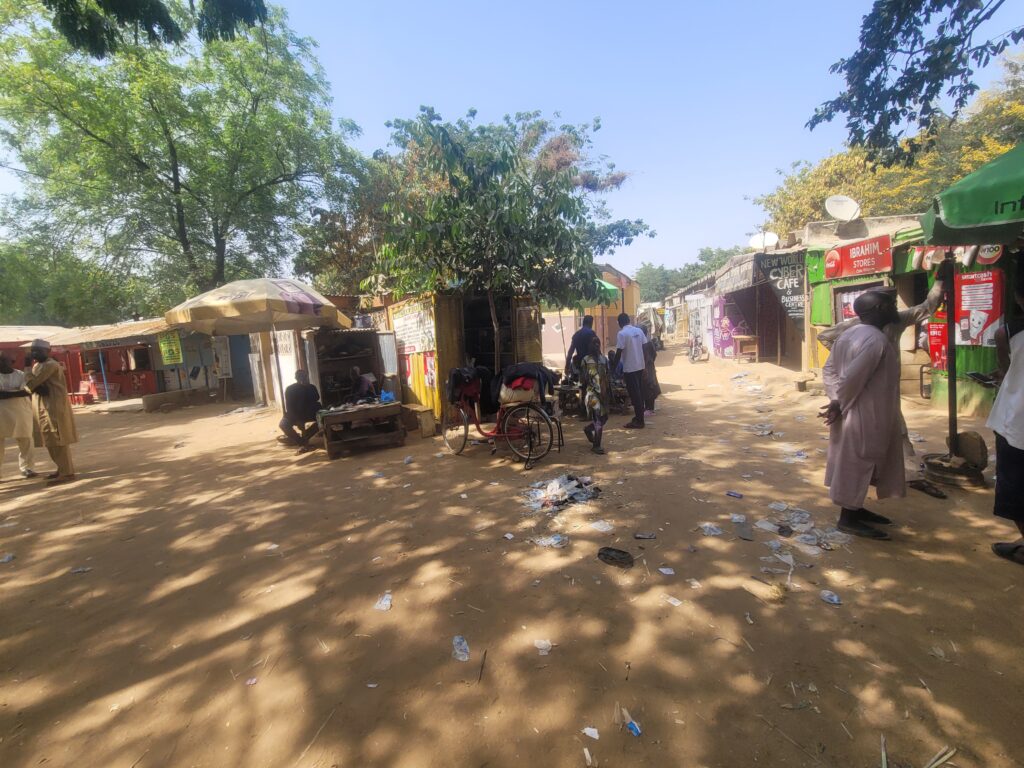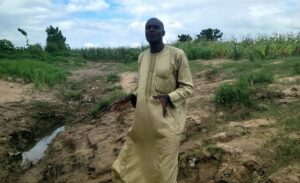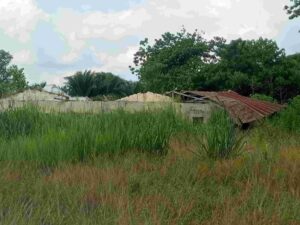The Department of Special Education, Bayero University (BUK) Kano, has approximately 500 students including over 200 students with special needs.
These students who are studying in the new site of the institution continue to encounter physical barriers to educational services, such as a lack of ramps and/or elevators in multi-level school buildings, and inaccessible washrooms, particularly when it comes to the printing of educational materials.
A visit and tour around the department showed that of the 6 lecture halls, 2 are dedicated to students with special needs.
Stallion Times noted that since the inception of special education, the department has been trying to cater to the needs of students with special needs by providing them with lecture facilities, hearing aids, magnifiers, braille, and other equipment that will aid teaching, and access to learning facilities.
Despite these services provided by the school authority, the students on the other hand, suffer access to commercial learning services from business owners who take advantage of their disabilities to make them pay high prices for services such as printing and photocopying academic materials in cafes in the institution’s commercial hub (Coke Village).

Coke Village, a marketplace within BUK’s new site is the hub for various business activities like printing, groceries, small and medium-scale businesses, restaurants, and tailoring services.
Stallion Times with the guide of an interpreter and a level 3 student of the department, Adegoke Abdulhakeem Adeolu, and some special needs students, took a business walk to the complex setting with numerous turns and twists that make it difficult for the special needs students to navigate. Yet, they are taken advantage of and charged exorbitantly for assignments and printing of reading materials taking advantage of their disabilities.
Interestingly, these business cafes do not have sign language interpreters; all special needs students who wish to carry on printing business services must be accompanied by a colleague or someone who will do the interpreting like Abdulhakeem.
Adegoke Abdulhakeem Adeolu is the leader of the volunteer team of interpreters in the department.
He explained the process of engaging their services.
“We are 5 interpreters (Aisha Sulaiman, a level 4 student, Auwal Yusuf, a level 3 student, Tohir Mujib Akoni, a level 4 student, and Ismail Jibril, a level 4 student).
“Any interpreter who is free at a particular scheduled time takes up the volunteer job.”
Adeolu said most of the special needs students go to the Coke Village on their own. In case of emergency or difficulty in understanding their business needs, the students call any of the available volunteer interpreters for assistance to guide against extortion.
Coke Village
The reality of extortion was grasped during participatory research conducted by Stallion Times on 20 December 2023.
On this day by 11:07 am, Stallion Times reporter pretended as a colleague and followed Mustapha Yunusa, a VI level 100 student from the Department of Islamic and Special Education to the Emirates Business and Communication Centre, located at Nasiru Mai Gurasa and Suya Street to do an assignment.
Assignment in the Coke Village language means a special needs student will submit his question to the business centre owner who in turn completes the research work and prints it out.
Shafiu, one of the workers in the business café owner who refused to reveal his second name, attended to Yunusa’s inquiry for an assignment.

This conversation ensued;
“I want to do an assignment on the history of Badar and Islam, which I have to submit tomorrow.
“Each of the assignments should be 10 pages; how much is the price? Yunusa inquired.
The shop attendant, Shafiu did not realise Yunusa was a VI because he was wearing black sunglasses, and he responded, “I will do the assignment for N4,000.”
Immediately, Shafiu laughed and said, “I would have charged more than the former price, but because of your condition, others can charge you N10,000 for 20 pages of an assignment.”
Shafiu replied: “Because of your condition as a special needs student, I need to see the assignment before I can determine the price.”
However, the business deal was not closed because Shafiu realised that Yunusa was a VI student.
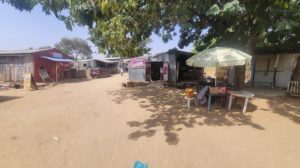
This shop offers general printing, typesetting, photocopying, binding, lamination, plastic ID cards, and online registration services.
At 12:21 pm the shop was open but he was not available; this reporter got his telephone number from a shop close to his and placed a call. He answered that call and showed up 10 minutes later.
An assignment negotiation ensued with this reporter.
“How much do you type a set assignment of 20 pages?
“The assignment will cost N200 per page, so for 20 pages, it is N4000,” he replied.
This reporter told him: “I have a VI classmate who wants to do the same assignment as mine; how much would you charge him?” …… he smiled and replied, “N5,000.00.
Why? He replied: “The nature of their assignment and research is different from that of normal students.”
Communication barrier
Communication and language barriers are now taking a negative toll on hearing-impaired students, as it is making the students isolate themselves….this may also lead to low self-esteem.
The lack of consideration shown by cafe owners in Coke Village is one of the main communication barriers for HIs students at BUK.
Stallion Times accompanied Habiba Kabir, a HI 200 student to Coke village on 23 December 2023 at about 11:15 am to observe the communication barrier faced by special needs students at Annur Café.
There, Habiba approached Emeka Philips, a worker in the shop for an assignment.
Philphs asked Habiba what she needed after exchanging pleasantries by hand gestures.
Habiba demonstrated her desire to print a handout in sign language, but Phillips did not understand what she wanted.
He mockingly said, “I don’t understand what you are demonstrating; this cafe is for normal people who can talk; just come along with an interpreter to explain.”
Phillips made a sign, indicating that she should leave.
Habiba left unhappy without having her printing materials photocopied.
‘We are aware of these challenges’ – Adviser to students with special needs
Dr. Abubakar Isah Ibrahim, a lecturer in the Department of Special Education and adviser to students with special needs, lamented that “students with special needs face serious challenges when it comes to accessing learning services at the commercial hub.

“We, the lecturers, are aware of these issues because, during their final year project, the cafe owners usually perform crappy work for them, which is done on purpose to defraud them.
“Because when we corrected their academic works, the café owners at Coke Village would reflect the corrections with something completely different.
SPESAN Speaks
The Special Education Student Association of Nigeria (SPESAN) BUK Chapter is a school-based organisation that manages the affairs of students with special needs.
Speaking with Stallion Times, the President of SPESAN, Oyeniyi Kudus Olanrewaju, stated that “the extortion has been there since I got admitted to the university.
“On numerous occasions, we assist our friends with special needs in completing their assignments; after we send it to them, they pay a lot of money to print it out, and they sometimes become an object of ridicule in the university in addition to being extorted.”
With the aid of Adeolu, the Secretary of SPESAN, Jafaru Sadik Adamu, a level 400 HI special education student, lamented that “mobility issues are another issue that special needs students face, particularly physically challenged and visually impaired students in the department.
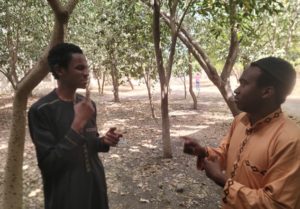
“They also encountered communication barriers when visiting Coke Village for printing because the cafe owners do not understand the sign languages.”
Home grown solution: SPESAN business centre proposal
To address the challenges faced by students with special needs in the department of special education, BUK, SEPSAN developed a project seeking printing material support that will provide an avenue for special needs students to have full accessibility that has no barriers.
According to the business proposal, which was made available to Stallion Times, SPESAN requires a total of N1,060,00 million to execute and implement their SPESAN photocopy and printing shop projects.
Items needed include HP Deskjet 2710, Pro 2020, wireless A4 colour 3 inb1, Elepaq 2.5KVA constant, key start generator, tables, chairs, shelves, toner, paper, cables, extensions, cords, ink, initial fuel, HP Elitebook 840 G5 Intel ci5, and installation.
Adamu highlighted that “what prompted this innovation and venturing communication barriers faced by the students with hearing impairment in the department while trying to make photocopy and printing services in the Coke Village where commercial activities are centralised.
“All of these challenges prompted the association’s urgent need for this project to alleviate the stress of special needs students in the department of special education and the faculty of education at large.
“In addition, the project will generate income that will directly contribute to the support of at least 20 students each year, assisting them in meeting their educational expenses.
“We intend for the shop to serve as a central business centre within the department, offering low-cost services to students, lecturers, and staff.
“Because this will not only reduce the financial burden on students with special needs, but it will also create a long-term source of income for the department and our association.
“In general, to build the students’ capacity completely in the business environment, as they will be taught and learn more under this small business enterprise.”
How the business centre would be management
Stallion Times was informed that the SPESAN business enterprise will be managed by the special education students association under the supervision of any staff determined by the department, who will be accountable for the business’s effective accountability.
In addition, the association shall establish a separate account for the business, which shall be used solely for business purposes, such as student procurement and payment.
This reporter was also informed that SPESAN will use a wage payment method that will be paid to the account of any students who work under the business venture.
The students will be given a tag for identification and will work by the hour, which means their pay will be calculated per hour and paid at the end of the week by the staff adviser and the chairperson of the SPESAN business committee.
Professor Shamsudeen Umar is the Dean of Students Affairs at BUK.
He said: “I am not aware of the extortion challenges faced by these class of students in Coke village because they have never complained to me on the issue.
On the SEPSAN business centre proposal, he responded that: “It depends on their request to the school for the business plan, from there the school management will pick it up and review it.
“The Vice Chancellor of the school is always ready to assist students with special needs.”
Today, Yunusa, a level 100 student with special needs (VI) from the Department of Islamic and Special Education, going to level 2 is currently experiencing a printing price hike and barriers due to his visual impairment. However, he contemplating stopping going to Coke Village to do his assignment or seeking learning access of any nature there.
On her part, Habiba, a 200-level hearing impairment student in the department of special education, will continue to face communication barriers at Coke Village whenever she needs to print or photocopy.
All these access to learning challenges faced by these students and many others of the institution may be solved if the homegrown solution (SEPSAN business centre proposal) matured.
This publication was supported by the Wole Soyinka Centre for Investigative Journalism (WSCIJ) through Stallion Times under the Collaborative Media Engagement for Development Inclusivity and Accountability Project (CMEDIA) funded by the MacArthur Foundation.

